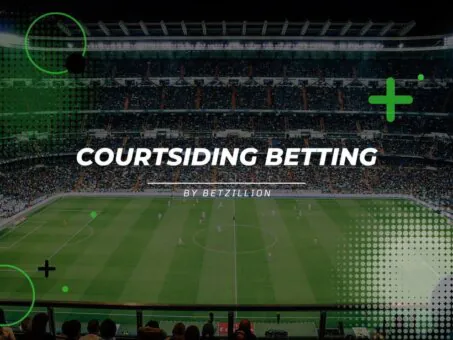Dead Heat Rules Explained

A “Dead Heat” in betting refers to tie events in sports like horse racing, golf, greyhounds, and swimming. It means more than one racers/participants crossed the line at the exact same time or achieved the same number of points on a golf course, making it impossible to choose just one winner.
What Are Dead Heat Rules?
Dead heat rules refer to how bookmakers settle bettors’ wagers in the event of an undecidable tie. Before we go into “what are dead heat rules in betting?”, it is noteworthy that in most cases, bettors only lose part of their wagers and not all in a dead heat scenario. These rules are identical to most sportsbooks for all affected sports and betting markets. However, you may encounter some exceptions at some other betting sites.
However, it is essential to understand the dead heat rules of your preferred sportsbook, as some sites can cut the odds instead of the stake to determine payouts.
Dead Heat Rules in Each-Way Bets
Each-way bets are prevalent in sports where undecidable ties happen; hence they are common with dead heats. The total stake in an each-way wager is divided into 2 equal parts: the “Win” part is placed on the participant to win, and the “Place” part is placed on the participant to finish in one of the predetermined places, usually 2nd, 3rd, or 4th place. The win and place bets are paid out if your selection wins the race. However, only the place bet is paid out if your selected participant finishes in one of the predetermined places but fails to win.
Dead heat rules betting payouts work differently in each-way bets compared to regular ones. For instance, if your place bet selection is tied with 2 other competitors at the second position and the each-way wager pays for the top 4 finished, your payout is unaffected. It is because your selection has effectively occupied half-second and half-third positions.
However, if your choice is tied at the third position similarly, your place bet stake is divided by 3 and multiplied by the set odds. Therefore, the next horse finishes in fourth position, like in an untied race, and you get your entire place bet winnings.
How Often Does a Dead Heat Occur?
Thanks to the phenomenal photo finish technology that can separate entrants that seem tied to the naked eye, dead heat has become rare in track events such as horse and greyhound racing. According to research-backed analytics, the number of dead heats recorded in global horse racing from 1801 to 2022, over 200 years, is 64.
Additionally, the Epsom Derby, one of the world’s biggest horse racing events that started in 1780, has only seen 2 dead heats in its history. Also, the most renowned National Hunt race, the Aintree Grand National, has never recorded a dead heat in almost 2 centuries. These statistics reveal that the scenario is exceptionally rare, considering the number of daily horse race events.
How Does a Dead Heat Payout?
As stated above, almost every sportsbook has the same rules for settling dead heat payouts. Generally, the bookmaker divides your stake by the number of entrants tied to your bet selection. It means part of your bet wins while the other loses. The percentage of your wager that wins or loses depends on how many entrants are tied for the position you wagered on. Let’s see a real example below.
How to Calculate Dead Heat Payout
Calculating basic dead heat payout is straightforward after understanding the concept itself in betting.
Similarly, a 3-way dead heat will result in 66.67% of your wagers losing and 33.33% winning. So if there are 3 tied entrants in the example above, your stake will be divided by 3, and your total payout will be $6.67 x 10/1 = $66.67 instead of $200.
In Which Sports Do Dead Heats Happen?
Dead heats are associated mostly with horse racing, greyhound racing, and golf due to the nature of these sports. However, this doesn’t mean the scenario can’t happen in many other sports, such as swimming, cricket, motorsports, and even football. For example, while dead heat is impossible in the football match betting, the scenario can happen in the top scorer market, as two or more players can finish a tournament with the same number of goals. Similar football markets where dead heats can happen include most yellow cards, assists, or qualifying points in a contest.
Golf Betting Dead Heat Rules
Golf tournaments don’t end in dead heat for the first place. If 2 or more players are tied for first position, then playoffs or extra holes determine the winner. However, golf betting dead heat rules usually apply when players wager on markets such as top 3, 5, or 10. Since ties are only broken for the first position, more than one player usually end up together in other places. Therefore, while dead heats don’t happen in golf from the sporting perspective, they are frequent from the betting one.
What Happens in a Dead Heat in Golf?
So what does a dead heat mean in golf betting? As mentioned above, this scenario only happens in golf when you wager on top finishing markets or place each-way bets. The example below will help you understand what happens to your golf wagers in case of a dead heat.
However, in certain scenarios, your payout may remain unaffected by dead heat rules in golf. For instance, if Phil Mikelson ties with 3 other players in the second position in the example above, all 3 players can finish in the top 4. Hence, your total stake is multiplied by 3/3, and you get your winnings.
Dead Heat Horse Racing Rules
Horse racing is the most cited sport when discussing dead heat, as it best answers the question, “What is a dead heat rule?”. It is because the nature of the sport involves several entrants racing to finish in the first place, making it possible for more than one to finish in the same position. However, dead heats in horse races have become rare today, thanks to brilliant photo-finish technology.
What Happens in a Dead Heat in Horse Racing
The basic horse racing dead heat rules are simple. As explained above, most sportsbooks divide your stake by the number of tied competitors in a horse race and multiply it by the odds of a dead heat to determine your payouts.
Dead heat horse racing rules get more complicated with each-way bets, as it can involve more calculations. For instance, let’s say you place an each-way wager on Secretariat to win the above race with the same stake and odds, with the bookmaker paying out at 1/4 odds for the first four places.
Below is how your payout works if the horse finishes tied with 3 others in the 4th position:
- A $60 stake is divided into 2 to cover the Win and Place part of your wager
- The Win wager is a loser, so the stake is reduced to $30
- Only 2 of the 4 tied horses will enter the top 4; Hence, your stake is now 2/4 x $30 = $15.
- Odds are paid out at a quarter, so 20/1 x 1/4 = 5/1
- 5/1 multiplied by $15 = $75
- Your Payout is $75
Since these calculations can take time and quickly wear you out, we recommend you use a dead heat payout calculator to simplify things. This tool is available for free on several betting guide online websites.
Dead Heat Swimming Rules
A dead heat in swimming occurs when 2 or more swimmers touch the wall at the end of the race at the same time. However, this rarely happens as electronic timing systems are used to measure the finish time with extreme accuracy. The judges may also use a photo finish to determine the finish order.
However, in rare cases of this scenario, the swimmers who tied are considered to have the same rank and share the placement that would have been awarded to the single winner. For example, if 2 swimmers tie for first place, they would both receive a gold medal, and the next swimmer would receive the bronze medal.
What Is a Dead Heat Reduction?
A dead heat reduction is the background of dead heat rules for calculating payouts. When a dead heat occurs in a betting event, the bet’s winnings are reduced proportionally based on the number of winners involved in the tie. For example, a bettor will only receive half of the original winnings in a 2-way tie. Also, a 3-way tie will see the total stake divided by 3 and multiplied by the odds to determine the payout. This results in 33.33% of the wager winning and 66.67% losing.
Can Sportsbooks Use Dead Heat Rules to Their Advantage?
As mentioned above, all sportsbooks have rules they must stick to when settling dead heat wagers. Therefore, there is no way they can use dead heat rules to their advantage. Instead, dead heat reduction ensures that every bettor receives a fair payout based on the actual outcome of the event. Also, it prevents bettors from winning more than they should when there is a tie and ensures that the bookmaker doesn’t suffer unnecessary losses.
However, our betting expert advises to choose reputable, licensed sportsbooks for fair and transparent services. Reading your preferred sportsbook’s Terms and Conditions on dead heat rules is essential if you frequently wager on sports where dead heats are common.
Final Words
Dead heat rules play a significant role in sports betting, especially in sports where ties and top finishing markets are common. These rules ensure fairness and avoid disputes among bettors and bookmakers. Although they occur rarely, dead heats are an aspect of betting you must understand to become an expert.
Additionally, it is essential to carefully read the terms and conditions of your preferred betting site to fully understand how dead heat rules are applied in different betting scenarios. It lets bettors know what to expect when their wager gets tangled up in an undecidable tie.
Frequently Asked Questions
-
What happens to a bet in dead heat?Generally, a dead heat results in a portion of your wager winning and the other losing. It means your original winnings will reduce proportionally depending on the number of tied winners. For instance, a 2-way tie usually results in your bookie dividing your total stake by 2 to determine your payout, and so on.
-
Who wins in a dead heat?There is no single winner in a dead heat as the tied competitors are considered to have the same placement. Usually, the bettor’s stake is divided by the number of tied entrants to determine the payout.
-
How are dead heat bets settled?Most sportsbooks settle dead heat bets by dividing the total stake of the bettor by the number of tied competitors and multiplying it by the odds for the selection. For instance, if you wager $10 on a horse to win a race at 5/1 odds, and he ties with 3 other horses in the first position, your $10 stake is divided by 3 and multiplied by 5/1 to give a return of $16.67.
-
Are dead heats common?Dead heats are rare in today’s sports setting, thanks to the exceptional photo-finish technology that helps separate competitors that seem tied to the naked eye. However, dead heat from the betting perspective is typical in sports where top finishing markets are popular, such as golf.
-
What is dead heat in swimming?A dead heat in swimming occurs when 2 or more swimmers touch the wall simultaneously at the end of the race so they can’t be separated by electronic timing or photo finish.
-
What does dead heat mean in horse racing?A dead heat in horse racing refers to a situation where 2 or more horses cross the finish line at precisely the same time, so they can’t be separated for betting purposes.
-
What is a dead heat reduction?A dead heat reduction forms the basis for calculating dead heat payouts. When a dead heat happens, your winnings are reduced proportionally based on the number of tied winners. For instance, a 2-way bet will reduce your original winnings to 50%, while a 3-way stake reduces it to 33.33%.
-
Still have questions?
Ask our experts
Related articles
Famous Horse Jockeys
Courtsiding Betting Explained






